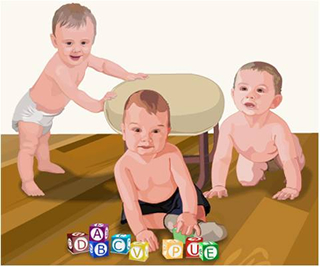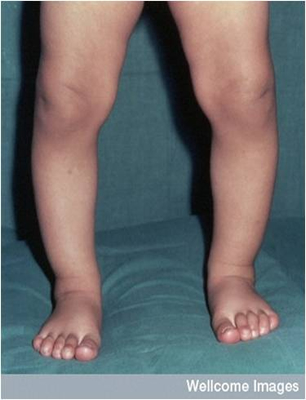Common Motor/Movement Problems Part 1: Normal Variations course


This session explores normal and abnormal motor development from birth until age five.
Learning objectives
By the end of this session you will be able to:
- Describe the patterns of normal, gross and fine motor development and their variation
- Assess motor development in children through observation and examination
- Explain the presentation, natural history, differential diagnosis and referral pathways for key developmental orthopaedic presentations
Typical motor development in childhood has a wide range. Knowing this and being aware of normal and idiosyncratic motor development patterns is important.
This session will explore the key features of abnormal motor development as well as ‘red flag’ signs.
Before commencing this session, you should complete the following HCP sessions:
- 01_01 Introduction to the Healthy Child Programme (402-0001)
- 02_02 Using Record Keeping to Promote Multi-agency Working (402-0004)
- 06_01 Introduction to Development Part 1: Description and Influences (402-0022)
Dr Jane Williams is a consultant paediatrician (community child health and neurodisability) at Nottingham University NHS Trust. Her interests include:cerebral palsy, acquired brain injury, and epilepsy.


Dr Elizabeth Marder is a consultant paediatrician at Nottingham University NHS Trust. Her interests include: Down Syndrome, autism, and pathway development.
- End of Life Care | Advance care planning | Advance...
- Posted By eIntegrity Healthcare e-Learning
- Posted Date: 2025-01-13
- Location:Online
- This session focuses on principles of good practice which underpin the appropriate and valid use of Advance Decisions to Refuse Treatment (ADRT), within an end of life care context. This session was reviewed by Fiona Rawlinson and Sarah Hanrott and last u
- End of Life Care | Advance care planning | Advance...
- Posted By eIntegrity Healthcare e-Learning
- Posted Date: 2025-01-13
- Location:Online
- This session builds on the principles of advance decisions to refuse treatment. It focuses on the practical steps involved in supporting patients requesting the development of an advance decision. This session was reviewed by Fiona Rawlinson and Sarah Han
- End of Life Care | Advance care planning | ACP in ...
- Posted By eIntegrity Healthcare e-Learning
- Posted Date: 2025-01-13
- Location:Online
- This session describes how the Preferred Priorities for Care tool may be used to facilitate advance care planning. This session was reviewed by Fiona Rawlinson and Sarah Hanrott, and last updated in February 2023.
- End of Life Care | Advance care planning | ACP and...
- Posted By eIntegrity Healthcare e-Learning
- Posted Date: 2025-01-12
- Location:Online
- This session provides an overview of the concept of illness trajectories and its influence on the advance care planning (ACP) process in end of life care. This session was reviewed by Fiona Rawlinson and Sarah Hanrott and last updated in February 2023.
- Acquired Brain Injury course
- Posted By eIntegrity Healthcare e-Learning
- Posted Date: 2025-01-12
- Location:Online
- This session will outline the causes and effects of acquired brain injury (ABI) in childhood. It wil...








